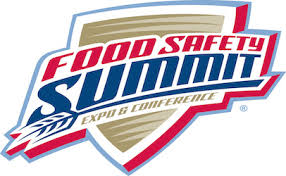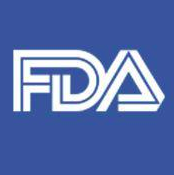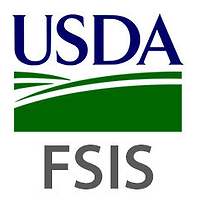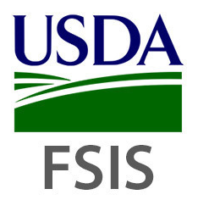Last week, part of the Food Safety Magazine team attended the 19th Annual Food Safety Summit held in Rosemont, IL. Just as in years passed, this was the spot for food operators, distributors, processors, growers, retailers, academians and regulators to gather and share knowledge on food safety’s most pressing issues.
The Summit opened with a memorable Keynote Presentation entitled Hot Topics in Food Safety. Speakers included:
- Kathy Gombas, formerly with the U.S. Food and Drug Administration (FDA)
- Dave Gombas, formerly with United Fresh Produce
- Jeff Steger, U.S. Department of Justice (DOJ)
- Shawn Stevens, Food Industry Counsel, LLC
- Craig Wilson, Costco
- Moderated by Dane Bernard, Bold Bear Food Safety
This impressive group of speakers certainly delivered on addressing hot topics of the day. Much of the Keynote was dominated by talk of upcoming Food Safety Modernization Act (FSMA) implementation, and the legal ramifications that could result when food companies are found not in compliance.
In the Keynote Presentation, Shawn Stevens spent the bulk of his time outlining solutions that food companies can begin implementing ASAP. First and foremost, companies need to be extremely aggressive with controlling pathogens. Along with that, food facilities should get into the habit of smart sampling. The other big change that Stevens suggested is that companies shift from focusing on the root cause of pathogen contamination and instead look for the root source--there is a difference. “Recalls occur because companies are not finding the root cause and then eliminating it. Everything we do boils down to that," says Stevens.
On the closing day of the Summit, the Town Hall was kicked off by awarding three individuals with NSF Food Safety Leadership Awards. This honor recognizes individuals that have made a real and lasting impact in the world of food safety. This year's honorees were:
- Lee-Ann Jaykus - Food Safety Innovation Award
- Jack Guzewich - Lifetime Achievement Award
- Dave Theno - Lifetime Achievement Award
Each year, the Town Hall also includes a panel of speakers. Back by popular demand, this year’s panel included an array of regulators representing the U.S. agencies that govern our food supply.
- Al Almanza, U.S. Department of Agriculture Food Safety and Inspection Service (FSIS)
- Joseph Corby, Association of Food and Drug Officials
- Dr. Robert Tauxe, U.S. Centers for Disease Control and Prevention
- Dr. Stephen Ostroff, FDA
At this year’s Town Hall, A Candid Conversation with Top Regulators, there was much chatter about how things will progress under the new leadership of President Donald Trump. Despite the new administration and widespread opinions that food safety may not be a priority for those in government leadership roles, many of the regulators in attendance seem hopeful that great strides will continue to be made in an effort to keep food safe. In fact, Al Almanza spoke very highly of newly appointed Agriculture Secretary Sonny Perdue, saying that his veterinary background actually makes continuing forward a lot easier for all.
In attending a number of Summit sessions and presentations, Food Safety Magazine noted some recurring themes and trends that seemed to come up repeatedly throughout the week. We have summarized those themes for you below.
Challenges Food Companies Are Facing with FSMA Implementation
Simply put, companies just do not know where to start. There has been an onslaught of questions that food companies--both big and small--have been asking about what is now being legally required of them. What do the rules and exemptions even mean? How do I know if my suppliers are safe? Where can affordable resources be found? Should we be following the Produce Safety rule, or the Preventive Controls rule? How does FDA reach the smallest businesses that might not be fully in the loop in terms of FSMA?
Despite all the questions out there, Craig Wilson reminds us all that FDA and FSIS are feeling the same angst that food companies are. However, he says, there is a lot of help out there--which is one of the main benefits of attending the Food Safety Summit.
“FDA won’t kill you if you make a mistake,” says Wilson.
What Exactly Are Food Companies Doing Wrong?
Shawn Stevens pointed to one single--but major--flaw that food companies are experiencing. They are not controlling for pathogens. He says, “That’s what gets food companies in trouble. But we have to gain control because FDA is coming.”
Do’s and Don’t for Companies Preparing for FSMA Inspections
- Don’t have just one person managing the responsibility. (Kathy Gombas)
- If you find problems, close the loop. Correct it. Now. (Dave Gombas)
- Be honest and open with FDA inspectors. Problems arise when you are not honest with them. (Jeff Steger)
- Don’t falsify documents. That’s what happened with Peanut Corporation of America. (Jeff Steger)
- Assume that emails will be seen by FDA and/or the DOJ. Also ask yourself: what would 12 jurors think? (Shawn Stevens)
To go along with the theme of best practices for companies awaiting FSMA inspections, there was a session entitled “My New FSMA Inspection is Coming: Expectations on Both Sides”. This session was co-moderated by Food Safety Magazine’s very own editorial director, Barbara VanRenterghem.
Scott Brooks of River Run Consulting gave a comprehensive list of 10 FSMA inspection insights that food companies should be aware of. A few of those insights included:
- Expect FSMA inspectors to ask questions to process owners, not just the Preventive Controls Qualified Individual or plant manager. They want to speak to the people who are actually doing the processes on the plant floor. They want to see if these individuals know and understand what they are doing and why.
- Inspectors do take pictures. Food companies may want to consult with their legal counsel to map out in advance how that will work and how those images may be used in the future.
- Food plants should expect a lot of inspectors at a time, and on multiple days.
- Several plant employees will be needed to accompany the number of inspectors doing swabbing.
- Food plants should share their inspection experience and learnings with their sister facilities--especially if the inspection does not go well. Sharing what happened will keep companies from getting penalized for the same mishaps at multiple locations.
Another important topic in this session was insight in terms of what FSMA inspectors are primarily focusing on:
- Pathogen control
- Allergen control
- Sanitation and cleaning
- Environmental monitoring
Even More Inspection Tips:
- Have scientific evidence to support your food safety decisions and practices.
- Have documentation in order BEFORE the inspection. Some plants might benefit from creating a one-page cheat sheet for plant employees so that everyone knows who is responsible for what since inspectors will ask.
- Conduct a mock investigation when the head plant manager is not present. Food companies need to know how things might really unfold if and when the boss is not around.
Whole-Genome Sequencing (WGS)
There was much focus on WGS and the role it is increasingly playing in the food safety arena. The use of WGS helps investigators to determine whether or a cluster of foodborne illness victims are truly part of a suspected outbreak. It can also identify when clusters that were thought to be outbreaks actually are not. According to one of Shawn Stevens’ presentations, the Blue Bell outbreak would not have been solved had it not been for WGS.
Next year, Food Safety Summit will be celebrating its 20th anniversary. For the third consecutive year, that Summit will be held in Rosemont, IL at the Donald E. Stephens Convention Center from May 7-10, 2018.




